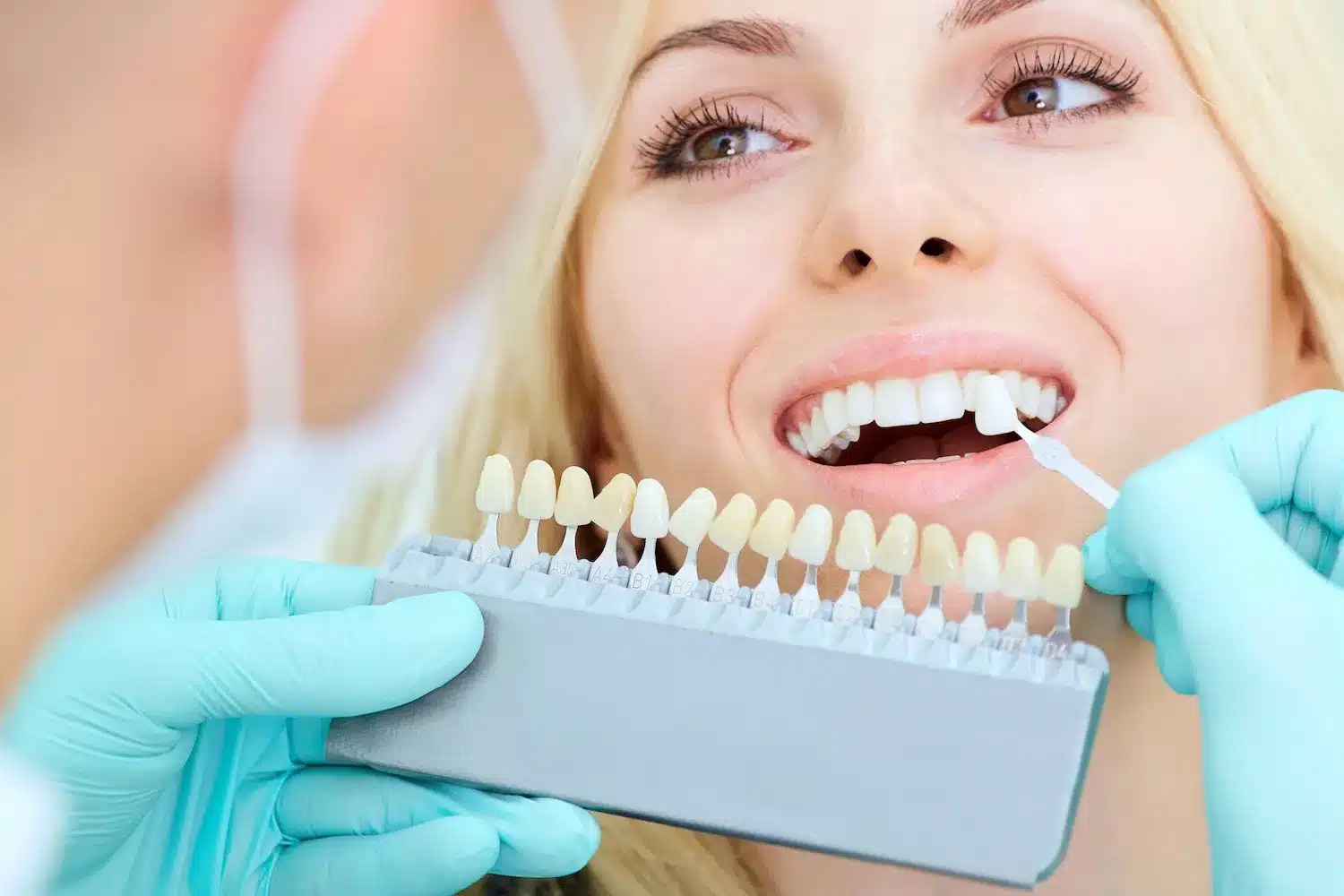
The Ultimate Guide to Dental Veneers: What You Need to Know

In the realm of cosmetic dentistry, dental veneers have emerged as a revolutionary solution for achieving that picture-perfect smile. Whether it’s correcting misalignment, discoloration, or chipped teeth, veneers offer a versatile fix with remarkable results. But what exactly are dental veneers, and how can they transform your smile? In this comprehensive guide, we’ll delve deep into the world of dental veneers, exploring everything you need to know before opting for this transformative dental procedure.
Understanding Dental Veneers:
Dental veneers are thin, custom-made shells crafted from either porcelain or composite resin. These shells are designed to cover the front surface of your teeth, enhancing their appearance and masking any imperfections. Veneers are a popular choice for addressing a variety of dental concerns, including:
- Discoloration: Stubborn stains that don’t respond to whitening treatments can be effectively concealed with veneers, restoring the natural brightness of your smile.
- Chipped or Worn Teeth: Veneers can seamlessly cover up chips and worn edges, revitalizing the aesthetics of your teeth.
- Misalignment: For individuals with minor alignment issues or gaps between teeth, veneers offer a non-invasive alternative to traditional orthodontic treatments.
- Irregular Shape or Size: Veneers can be customized to alter the shape and size of your teeth, creating a more uniform and symmetrical smile.

The Procedure:
The process of getting dental veneers typically involves the following steps:
- Consultation: During your initial consultation, your dentist will assess your oral health and discuss your goals and expectations for the procedure. This is also an opportunity to ask any questions you may have and address any concerns.
- Preparation: Before placing the veneers, a small amount of enamel will be removed from the surface of your teeth to ensure a proper fit. This step is crucial for achieving optimal results and may require local anesthesia for comfort.
- Impression: Once your teeth are prepared, your dentist will take impressions to create custom-made veneers that match the color, shape, and size of your natural teeth.
- Temporary Veneers (if necessary): In some cases, temporary veneers may be placed while your permanent ones are being fabricated in a dental laboratory. These temporary veneers offer protection and maintain aesthetics until the final veneers are ready.
- Bonding: Once the permanent veneers are ready, your dentist will carefully bond them to the front surface of your teeth using a special adhesive. Any necessary adjustments will be made to ensure a comfortable fit and natural appearance.
Benefits of Dental Veneers:
Choosing dental veneers offers a multitude of benefits, including:
- Enhanced Aesthetics: Veneers can instantly transform the appearance of your smile, boosting your confidence and self-esteem.
- Minimal Tooth Alteration: Unlike some dental procedures, veneers require minimal alteration of the natural tooth structure, preserving the integrity of your teeth.
- Stain Resistance: Porcelain veneers are highly resistant to staining, allowing you to enjoy a bright, white smile for years to come.
- Durable and Long-lasting: With proper care and maintenance, dental veneers can last for a decade or more, making them a worthwhile investment in your smile.
- Natural Appearance: Modern veneers are designed to mimic the translucency and texture of natural teeth, ensuring a seamless blend with your smile.
Aftercare and Maintenance:
To maximize the longevity of your dental veneers, it’s essential to follow a few simple aftercare tips:
- Practice Good Oral Hygiene: Brushing twice a day, flossing regularly, and attending routine dental check-ups will help protect your veneers and maintain your overall oral health.
- Avoid Teeth-staining Substances: Limit consumption of staining beverages such as coffee, tea, and red wine, and refrain from smoking to prevent discoloration of your veneers.
- Wear a Mouthguard: If you participate in contact sports or grind your teeth at night, wearing a mouthguard can protect your veneers from damage.
- Avoid Excessive Force: While veneers are durable, they can still be damaged by excessive force. Avoid biting down on hard objects or using your teeth as tools to prevent chips or fractures.
Dental veneers offer a transformative solution for achieving a flawless smile with minimal hassle. Whether you’re looking to correct discoloration, chipped teeth, or minor alignment issues, veneers can provide a natural-looking, long-lasting solution. By understanding the process, benefits, and aftercare involved, you can make an informed decision about whether veneers are the right choice for enhancing your smile and boosting your confidence. Don’t let dental imperfections hold you back – take the first step towards a brighter, more confident smile with veneers!









